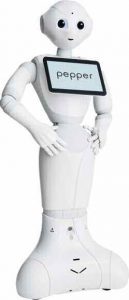 Japan may be the economic canary in the coal mine, Matt Sanders ’00 believes. And at the same time, it may already be transforming itself into the economy of tomorrow.
Japan may be the economic canary in the coal mine, Matt Sanders ’00 believes. And at the same time, it may already be transforming itself into the economy of tomorrow.
Once a powerhouse, Japan’s economy has struggled for the past 30 years. Much of that sluggish growth, says Sanders—the founder and president of East Gate Advisors, a U.S.-Japan business advisory firm—can be attributed to demographics. “Japan leads the world in its aged population, and there’s also the fact that the Japanese population has actually been in decline for seven years,” he says. Add to that the tendency for Japanese women to quit the workplace after they marry, and you have a declining number of workers supporting an increasingly expensive non-working population.
What’s Next For:
Revolutions?
Syria?
Mexico?
Japan?
The United States?
Earthquake Safety?
Climate Action?
California Water?
Climate Science?
Solar Energy?
California Fruit Farming?
Technology Investing?
Nanoscience?
Digital Storage?
Artificial Intelligence?
Cyber-Threats?
Social Media?
Space Exploration?
Science Museums?
The Sagehen?
Biodiversity?
The Blind?
Big Data?
Mental Illness?
Health Care Apps?
Maternity Care?
Etiquette?
Ballroom Dance?
Thrill Seekers?
Outdoor Recreation?
Funerals?
Writers?
Movies?
Manga?
Alt Rock?
Women in Mathematics?
But with populations aging throughout the developed world and automation displacing more and more human workers, Sanders thinks other societies—including ours—may soon be in the same predicament. If so, he says, the liabilities that have hindered Japan’s progress may also be transforming it into the economy of the future.
That’s because the Japanese are integrating technology in general—and robotics in particular—into their society at a rate that Americans find mystifying. Americans remain leery about interacting with robots, but the Japanese have welcomed them enthusiastically.
Sanders points to the proliferation in Japan of such robots as Aibo, the cute little robotic dog; Asimo and Pepper, anthropomorphic robots designed to act like humans; and Paro, a cuddly robotic baby seal designed to work as a kind of therapy animal with dementia patients. These may seem like curiosities now, but in a world where fewer people are working and more people need care, such technologies may soon be necessities. “In the U.S., the lack of consumer and general public acceptance has a real tendency to hold that technology back in integrating into society, and that’s where you can see the Japanese sort of charging ahead,” Sanders says.
The resulting transformation of Japanese society, he says, will be just one more in a long line of periodic transformations. “Japan stays exactly the same for a long, long time, until some sort of event happens. And then it changes really quickly, like right before your eyes, overnight and radically. The place will stay exactly the same for 50 years, 100 years, 200 years. Then suddenly, something happens, and boom—it’s unrecognizable the next day.”
